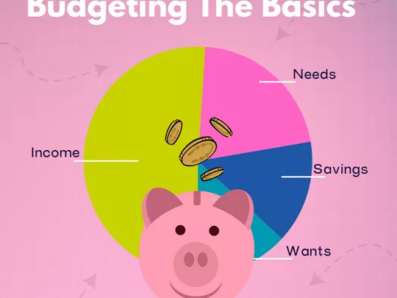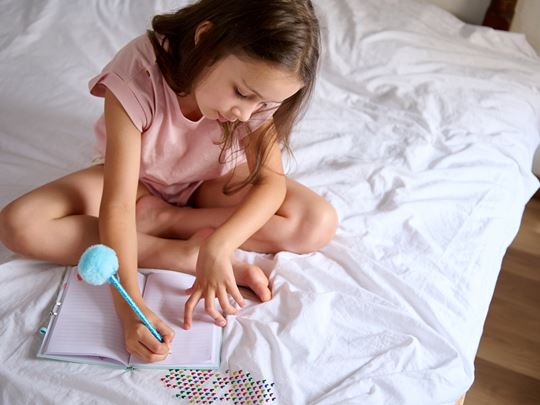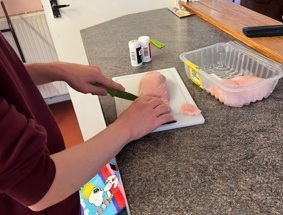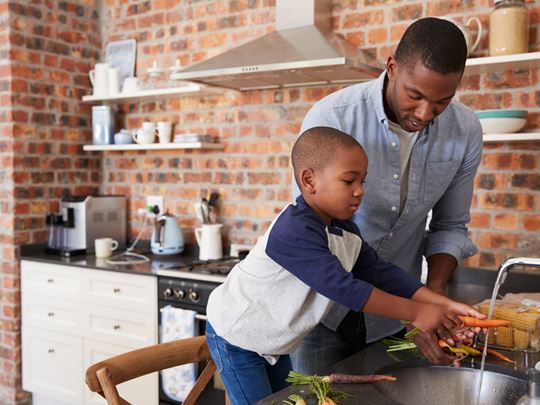Say Goodbye to Stress and Hello to a New Routine
Do you find yourself procrastinating or spending your weekends catching up on homework, wishing you had more time to see your friends and do the things you love? This could be a sign that it’s time to rethink your current routine and build a new one, so you can spend less time worrying about balancing schoolwork with other activities and more time enjoying the things that truly matter to you. Join us as we explore the importance of routine, its benefits, and how to create a realistic one you’ll stick to.

Why does routine matter?
You likely follow a routine without even realising it – whether eating the same breakfast every day or watching TV at the same time every night. When you go to school, the day is structured and usually adheres to a routine. You might follow a two-week timetable and have breaks at the same time each day.
When you first started school, it likely took you a while to settle into the routine, but over time, it probably became second nature – you know exactly which lesson you’ll have on which day and when you’ll have a break. Without this structure, no one would know where they need to be or when, making it difficult for everyone involved to understand what’s expected of them.
The same goes for life outside of school. A routine makes it easier to fit everything in because you know what you need to do, when it needs doing, and how particular activities will fit in alongside your other commitments. However, if your routine is unbalanced, it can make it harder for you to prioritise, and you may constantly feel behind or frustrated with being unable to do the things you love.
Benefits of a good routine
Alongside knowing exactly what you need to do and when, creating a balanced routine offers a wide range of benefits, including:
- Sleep – Going to bed at the same time every night and waking up at the same time every morning improves sleep quality, helping you feel refreshed and ready to face a new day.
- Eating – Routines can help you eat better because you’ll have time to prepare a healthy option rather than reaching for a quick snack because you haven’t planned ahead.
- Exercise – Consistent routines ensure you’ll have enough time to exercise, which will improve your fitness, focus and overall well-being.
- Fun – Life isn’t just about responsibilities like chores, homework and school. A good routine allows you to enjoy guilt-free time with your friends or doing activities you love.
- Mental well-being – Routines can reduce stress and anxiety. Getting enough rest, eating healthily, exercising regularly, and having time for fun will make you feel happier, more balanced and in control.
If you’re ready to say goodbye to feeling unbalanced, overwhelmed and stressed by your schedule and hello to the benefits above, it’s time to build a new routine.
How to build a healthy routine
If building a new routine sounds daunting, don’t worry – we’re here to help. Just follow these simple steps:
-
Reflect on your current routine
Take a moment to think about how your current routine makes you feel. Are you stressed, tired, or wishing for more time to exercise, have fun or eat healthier? Jot down any thoughts that come to mind and consider what you want to achieve by creating a new routine. For example, maybe you want to start going to bed earlier or finish your homework during the week so you can enjoy your weekends. Knowing exactly why you’re changing your routine will help you stay motivated.
-
List your responsibilities and passions
Write down everything you need to do, like school, homework, chores or a part-time job, including dates and times. For example, what are the start and end times for school or work, and do you have a deadline for homework and chores?
Then add the things you love doing and wish you could do more, like hanging out with your friends, gaming, or pursuing a hobby you’re passionate about.
-
Pick a scheduling tool
Choose a scheduling tool that will help you visualise each week. You could use an app, calendar, or spreadsheet. Many apps and the calendar on your phone also allow you to set reminders, ensuring you never forget the next task on your to-do list. Make sure you pick a tool you don’t mind interacting with, so you’ll stick with it until your new routine becomes second nature.
-
Set a realistic wake-up and bedtime
Think about how much time you’ll need to get ready before heading to school and set a wake-up time. Be honest with yourself – if you’re not a morning person, setting your alarm at 5 am might not be realistic, and you’ll quickly slip back into your old routine. Start with a wake-up time that you can actually commit to and set a bedtime that will allow you to get enough rest. This way, you’ll always feel ready to face a new day.
-
Block out time for each task
Next, block out time for your non-negotiable tasks like school and then fit in your other responsibilities around it. Make sure you also allow enough time to get to and from commitments. You can then allocate time to your remaining tasks, such as homework or chores. Once you’ve done this, you’ll see exactly how much time you have left to dedicate to exercise, self-care, and doing things you really enjoy.
-
Focus on one or two goals at a time
Pick one or two goals that you want to achieve by changing up your routine, such as fitting in more exercise or completing your homework before the weekend. As these become part of your routine, not only will you start freeing up more time for the activities you enjoy, but you’ll also feel healthier, happier and in control of your schedule.
-
Regularly re-evaluate your routine
Once you’ve set one or two realistic goals and adjusted your routine, remember to check in with yourself regularly to see if it’s still working for you. As you grow and your commitments change, you’ll need to adapt your routine to fit your lifestyle.
The great part is that once you begin to enjoy the benefits of a healthy routine—such as reduced stress and more time for activities you love—you’ll feel motivated to maintain it. This will help you better manage any changes that life throws your way.
Check out our Being in Care Hub for more blogs offering guidance on preparing for independent living, succeeding at school and looking after your health and well-being. From budgeting basics to finding your first part-time job, we’re here to help you build the skills and confidence you need to thrive.
















